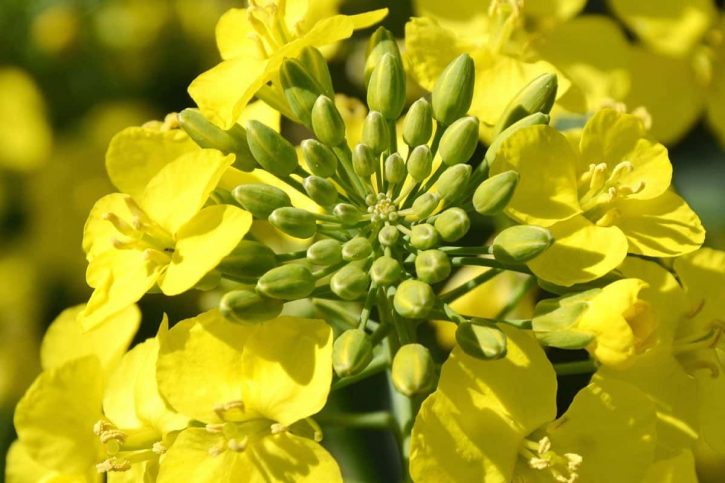India approves genetically modified GMO rapeseed. Green light in India! The authorization came from the Genetic Engineering Appraisal Committee, India’s top regulator of genetically modified plants and food products..
India is one of the world’s strongest consumers of rapeseed oil, which is used for cooking. Therefore, India imports huge quantities of it each year, costing millions of dollars. The current consumption rate of edible oil in India exceeds the domestic production rate, and currently, India meets nearly 55-60% of its edible oil demand through imports.
Scientists say India’s growing population and shrinking cultivable land mean it needs to adopt more efficient ways of farming.
Genetically modified (GMO) rapeseed for environmental release
GMO rapeseed has been approved by India’s top regulator of genetically modified plants and food products, the Genetic Engineering Appraisal Committee. This makes it India’s first GMO crop to receive approval for commercial cultivation, 15 years after its invention by Deepak Pental, a bioscientist at Delhi University’s Center for Genetic Manipulation of Crop Plants. Pental hybridized the rapeseed in the institute’s laboratories and grew it in experimental fields as part of a government-funded project.
Previously, India had only approved one genetically modified crop for commercial cultivation, a pest-resistant cotton. Cotton is currently the only GM crop allowed for cultivation in India.
Opposition and GMO supporters
The favorable decision was hotly contested by the “Coalition for GMO-Free India,” which called the decision “shocking”. Activists have presented many petitions against the testing and subsequent commercial release of GMO crops. The Coalition also called for monitoring the effects of upcoming large-scale GMO crops on pollinator bees.
Years earlier, in 2009, GEAC approved a GMO for eggplant, but the opponents led the government to block this choice.
Satisfied, in contrast, are supporters of the GMO rapeseed, who say this type of seed will be much more resilient than non-transgenic seed. They hope that the nation’s farmers will have access to hybrid seeds before the October 2025 planting season.

